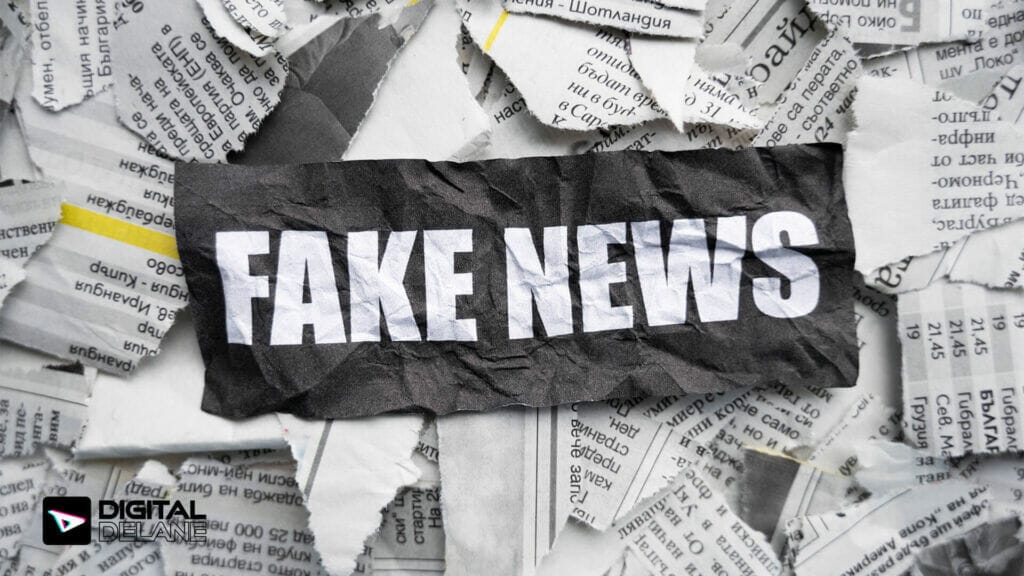The Ethics of Digital Marketing: What Marketers Need To Consider

In today’s hyper-connected world, digital marketing ethics is more than just a buzzword; it’s an integral part of our daily lives. This blog delves into the ethics in digital marketing efforts & considerations that underpin our digital endeavors to build trust.
From privacy and transparency to authenticity and social responsibility, we’ll explore the moral landscape of ethical marketing practices and why it’s crucial for us, as marketers, to navigate it with the integrity of personal data.
Key Ethical Considerations:
Privacy: How marketers collect, use, and store customer data


In the digital era, marketers have access to more data about their customers than ever before. This consumer data can be collected through a variety of digital platforms, including website cookies, social media, and online surveys. Marketers use this data to track customer behavior, target advertising, and improve their products and services.
However, the collection and use of customer data raises several ethical concerns about consumer privacy. Marketers need to be transparent about how they collect and use data and obtain consent from customers before gathering any sensitive data. Marketers also need to protect customer data from unauthorized access and use.
Here are some specific things that marketers can do to ensure that they use their data ethically:
Be transparent about their data collection practices. Marketers should clearly explain to customers how their data is collected and used. This information should be easy to find and understand.
Obtain consent from customers before collecting any sensitive data. Sensitive data includes financial data, health data, and political views. Marketers should not collect this data without the express consent of the customer.
Take steps to protect customer data from unauthorized access and use. Marketers should use strong security measures to protect customer data from hackers and other unauthorized individuals.
Give customers the ability to access and control their data. Customers should be able to access their data and change it as needed. They should also be able to delete their data if they wish.
By following these guidelines, marketers can help ensure that they handle customer data ethically and responsibly.
Ready to Discuss Your Project? Chat With Our Marketing Team
Transparency: Being honest and upfront about marketing practices
Transparency is another important ethical principle for digital marketers. Marketers should be honest and upfront about their marketing practices, including how they collect and use data, target advertising, and measure their campaigns’ success.
Here are some things that marketers can do to be more ethical in their digital marketing practices:
Avoid using dark patterns. Dark patterns are manipulative design techniques that trick people into taking actions they would not otherwise take.
Respect the privacy of their customers. Marketers should not collect or use customer data without their consent.
Be honest about the results of their marketing campaigns. Marketers should not exaggerate the effects of their campaigns to make a sale.
Be mindful of the impact of their marketing on society. Marketers should avoid marketing products or services that harm people or the environment.
Authenticity: Creating content and experiences that are genuine and relevant to target audiences
In today’s digital age, consumers are more skeptical than ever of marketing messages. They can easily spot fake or misleading content, and they are more likely to trust authentic and genuine brands.
That’s why marketers need to create content and experiences that are authentic and relevant to their target audiences. This means being honest and transparent about yourself and your actions and avoiding manipulation or deception.
Here are some specific things that marketers can do to create more authentic content:
Be yourself. Don’t try to be someone you’re not. Your audience will be able to tell and appreciate your authenticity.
Be honest and transparent. Don’t make promises you can’t keep, and don’t exaggerate the benefits of your products or services.
Be relevant to your audience. Tailor your content to the interests and needs of your target audience.
Be consistent. Your content should be compatible with your brand identity and values.


In addition to being honest and transparent, marketers should use their skills and resources to promote positive social change. This could involve using digital marketing to raise awareness about important issues. It could also include using digital marketing to support important causes to the marketer or their audience.
Here are some specific ways that marketers can use digital marketing to promote positive social change:
Create awareness about important issues. Marketers can use their platforms to raise awareness about important issues like climate change or poverty. They can create content, run social media campaigns, or partner with organizations working on these issues.
Support causes that are important to their audience. Marketers can use their platforms to support essential causes to their audience. They can do this by donating money, volunteering their time, or promoting these causes through marketing campaigns.
Empower their audience to take action. Marketers can use their platforms to empower their audience to take action on important issues. They can do this by providing information about getting involved or connecting their audience with organizations working on these issues.
Specific Examples Of Unethical Digital Marketing Practices:
Spam: Sending unsolicited messages or emails
Spam is the sending of unsolicited messages or emails, typically advertising, to a large number of recipients. It is considered unethical because it is a form of intrusion and can be disruptive and annoying to recipients. Spam can be sent through various channels, including email, text messaging, and social media. It can also be sent through unsolicited phone calls or physical mail.
Marketers should avoid sending spam because it is unethical and can damage their reputation. If you are a marketer, there are several things you can do to avoid sending spam, including:
➡ Only send messages to people who have opted in to receive them.
➡ Make it easy for people to opt out of receiving your messages.
➡ Be clear about the purpose of your message and why you are sending it.
➡ Do not use misleading or deceptive language.
➡ Respect the privacy of your recipients.
By following these guidelines, you can help ensure that your marketing messages are not considered spam.
Clickbait: Using misleading headlines or images to attract clicks


Clickbait is a type of online advertising that uses misleading or sensationalized headlines or images to attract clicks. It is considered unethical because it is a form of deception and can lead to people clicking on links they would not otherwise click on.
Clickbait is often used in social media, where it can be used to drive traffic to websites or to generate leads for businesses. It can also be used to spread misinformation or to scam people.
Being a marketer, you should avoid using clickbait because it is unethical and can damage your reputation. There are several things you can do to prevent using clickbait, including:
➡ Use honest and accurate headlines that accurately reflect the content of your article.
➡ Avoid using sensationalized or misleading language.
➡ Make sure your images are relevant to the content of your article.
➡ Be clear about the purpose of your article and why someone should click on it.
Ad Fraud: Generating fake traffic or engagement to inflate advertising results.
Ad fraud is generating fake traffic or engagement to inflate advertising results. It is considered to be unethical because it can mislead advertisers and publishers about the effectiveness of their digital marketing campaigns.
Ad fraud can have a significant impact on the digital advertising industry. It can cost advertisers billions of dollars each year and damage the reputation of publishers and marketers. There are several things you can do to avoid committing ad fraud, including:
➡ Use a reputable ad network with measures to prevent ad fraud.
➡ Monitor your campaigns for signs of fraud.
➡ Use a fraud detection tool to identify and block fraudulent traffic.
By following these guidelines, you can help to protect your business from ad fraud.
Here are some additional tips for avoiding ad fraud:
➡ Only work with reputable publishers and partners.
➡ Use clear and concise language in your ad creative.
➡ Avoid using clickbait or misleading headlines.
➡ Use a variety of ad formats to reach your target audience.
➡ Track your results carefully and make adjustments as needed.
By following these tips, you can help to reduce the risk of your campaigns being affected by ad fraud.
How To Avoid Unethical Digital Marketing Practices:
In the world of digital marketing, maintaining ethical standards is paramount. Upholding these standards involves several vital principles. Firstly, always obtain customer consent before collecting or utilizing their data, ensuring compliance with data protection regulations.
Transparency is equally crucial. Make your marketing practices clear in your privacy policy and other disclosures. Crafting authentic and relevant content tailored to your target audience fosters trust and engagement.
Marketers can avoid unethical digital marketing practices by being honest and transparent, respecting the privacy of their customers, being mindful of the impact of their marketing, using ethical marketing tools and techniques, and being accountable for their actions. They can also educate themselves about the ethical guidelines for digital marketing mentioned in this blog, get input from others, get feedback on their marketing campaigns, and be willing to change their practices.
Digital Delane: Leading the Way in Ethical Digital Marketing
Digital Delane, a renowned digital & paid Social marketing agency, stands out as a beacon of ethical digital marketing practices. With a steadfast commitment to integrity and transparency, Digital Delane prioritizes the security and trust of its clients because it understands the importance of ethics in digital marketing. Their team is adept at safeguarding against cyber threats while promoting ethical marketing strategies. By emphasizing honesty and authenticity in their campaigns, Digital Delane ensures client success while maintaining the highest ethical standards. Whether protecting against online security risks or delivering impactful marketing solutions, Digital Delane leads by example, setting a standard for responsible and trustworthy digital marketing practices.
Digital Delane is a shining example of ethical digital marketing, embodying a commitment to integrity and authenticity. Through their use of consent-based marketing practices, they prioritize respecting users’ privacy and choices. They seek explicit permission before engaging customers, ensuring a transparent and respectful data collection and communication approach.
Moreover, Digital Delane’s dedication to crafting authentic content resonates with audiences, fostering trust and long-term relationships. Their focus on delivering genuine value with an ethical approach rather than deceptive tactics is a testament to their ethical principles, setting a commendable standard in digital advertising campaigns.
Do you want to grow faster? Schedule a free consultation call with an expert
Conclusion
In the ever-evolving digital marketing landscape, maintaining ethical standards is paramount. Marketers must consistently prioritize transparency, data privacy, and responsible content creation. Upholding these ethical business practices fosters consumer trust and safeguards brand reputation. Digital marketers must recognize the ethical implications of their strategies and always act with integrity.
Explore guidelines and other ethical issue-related resources to delve deeper into and highlight the ethical digital marketing tools practices. Let’s collectively ensure that ethical standards remain at the forefront of our industry and hold ourselves and fellow marketers accountable for responsible and ethical rules.


















